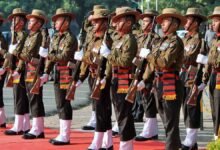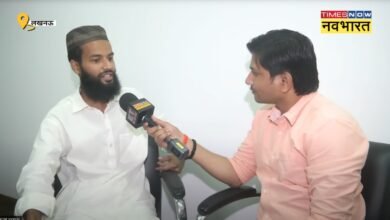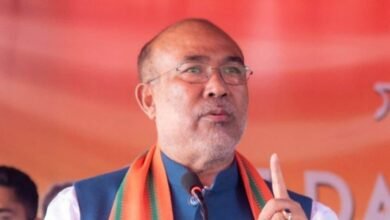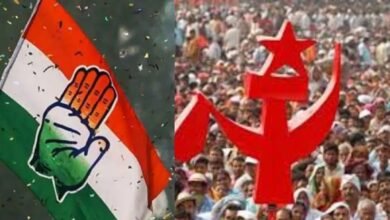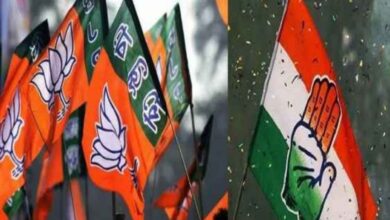Northeast India & AFSPA: The butchering of human rights & crimes against women
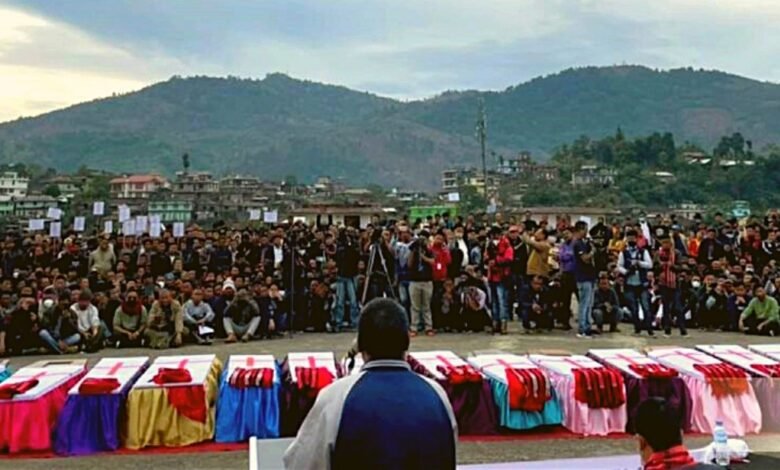
AFSPA was implemented in Northeast India in the 1950s to counter the growing Naga insurgency in the then state of Assam
The recent incident of civilians being shot by the Army in the alleged case of mistaken identity in Nagaland has again raised questions on Armed Forces Special Powers Act or AFSPA. This law gives immense power to the Army against civilians in disturbed zones.
Over the last two decades, several cases have come to light, questioning the Act and demanding its repeal. During the funeral procession of the innocent civilians killed in an Army ambush, Nagaland Chief Minister Neiphiu Rio has urged the Centre to remove AFSPA.
Nagaland and AFSPA
Ethnic Nagas have opposed Indian rule since independence. The tribes of Naga Hills united under the Naga National Council (NNC), initially formed to seek political measures for self-governance. The NNC declared independence and took up arms. The AFSPA was enacted in 1958 to end the armed separatist campaign.
By the 1980s, the National Socialist Council of Nagaland (NSCN), the prominent insurgency group in the Northeast in those days, had eventually overshadowed the NNC. Later, the NSCN was divided into two primary opposing fractions: the NSCN-IM and the NSCN-K, whose clashes still result in many deaths.
Civilians have complained about the blatant misuse of the AFSPA for the last five decades. The Army is responsible for untold killings and disappearances along with sexual abuse and rapes.
The 1995 killings in Kohima city is a scary example of the hostile environment in the state. The indiscriminate shootings by soldiers began after they mistakenly thought the sound of a tire bursting was a bomb attack. Seven civilians, including girls aged three and eight years, were killed in the hour-long firing. Another 22 were seriously injured, which included seven children.
The other North-east States and AFSPA
First enacted in 1958 by the Parliament, AFSPA was then implemented in Northeast India and Punjab. The bill was introduced in response to the Naga insurgency in the then state of Assam in August, 1958. It was debated for two hours.
Under the 1972 amendment, AFSPA was extended to each new seven sister states formed – Assam, Manipur, Meghalaya, Nagaland, Tripura, Mizoram and Arunachal Pradesh. Between 1985 and 1994, similar laws were implemented in Punjab. Since 1990, a version of the AFSPA has been in place in Jammu and Kashmir.
Arunachal Pradesh
In Arunachal Pradesh, areas bordering Assam had been declared disturbed in the 1960s. Violence was largely dictated towards Chakma and Hajong tribes who migrated from Bangladesh in those days. In addition, insurgent groups from Nagaland and Assam have a strong presence in Changlang village.
Due to AFSPA, the security forces assaulted Borduria villagers during a search for militants of the National Socialist Council of Nagaland (NSCN) on June 5, 2002.
Assam
In Assam, the militancy first broke out in 1979. With the start of fresh violence, the entire state of Assam was declared disturbed in 1990. United Liberation Front of Assam (ULFA) remains the principal insurgent group in Assam.
In the 1980s, the second round of insurgency happened with Bodo tribal groups demanding a separate state. The Army carried out atrocities in the name of AFSPA.
One of the darkest misuses of AFSPA was when children aged from four to 12 were imprisoned in different jails for being kids of suspected separatists. Over 20 children had spent their lives and grew up in jails across the state based on suspicion.
In 2003, they and their unarmed mothers were first detained by the Bhutanese soldiers under counter-insurgency measures and were later handed over to the Indian soldiers.
In February 2005, a 12-year-old girl was raped by an Assam Rifles officer in Karbi Anglong. The doctors confirmed that the officer raped the kid after sedating her with sleeping pills. Fearing severe backlash like in Manipur, the police arrested the accused and his accomplices.
Manipur
Certain areas of Manipur were declared disturbed after the 1958 adoption of the Act. The entire state of Manipur was brought under the Act in 1980.
Human rights violations by security forces have rocked Manipur for the last five decades with depressing regularity. Torture, including beatings, electric shocks, and simulated drowning, arbitrary arrests and extrajudicial executions are common.
Manipuris have campaigned long for the repeal of the AFSPA. They have engaged in a few desperate acts like self-immolation and stripping naked in front of an Army camp.
Irom Sharmila, a human rights activist, has been on a fast until death since 2000 but kept alive by force-feeding by doctors in judicial custody. She broke her fast in August 2017.
A massive protest against AFSPA broke out after the Thangjam Manorama Devi murder in July 2004. The morning after her arrest by the Army, Manorama’s dead body was spotted near her house with bullet wounds in the lower part of her body. She was shot to hide the evidence of rape by the Assam Rifle officers.
The massive protest after the incident had forced the Central government to set up Justice BP Jeevan Reddy Committee to review the AFSPA.
Meghalaya
The 20-kilometre-wide belt in Meghalaya bordering Assam was declared a disturbed area in November 1990, after militancy broke out in the 1980s due to the steady trickling down of the Bangladeshi population since 1947.
Under the auspices of the AFSPA, the armed forces have committed numerous atrocities against civilians. During ‘Operation Birdie’, many Khasi tribal women were raped and were used as a human shield by the Assam Rifles in violation of the laws of war. They placed their gun’s muzzle on the shoulders of women in the retaliation attack on the NSCN. Although Meghalaya is mostly peaceful now, a large number of alleged arbitrary detentions, rapes, and torture cases have never been properly investigated.
Mizoram
Mizoram was declared a disturbed area in January, 1967. AFSPA was revoked in June, 1986 after the signing of a peace accord. But it remains a ‘sleeping’ law.
The perceived government neglect and famine in the 1960s have resulted in the armed independence struggle by the Mizo National Front (MNF).
In the 20-year-long battle, the rights of the Mizos, especially of women, were violated due to AFSPA with widespread allegations of rapes, extra-judicial killings and many more.
Five soldiers had raped a woman called Lianthangvuanga when she was barely 13 years old. Though she managed to escape but suffered further trauma of seeing her father being tortured by the Army. Her father eventually succumbed to his injuries.
She later revealed that she had not spoken about the incident to anybody as the family decided to forget the fateful encounter. She felt shameful for being violated by the officers.
Tripura
Tripura state was declared disturbed. It was brought in the purview of AFSPA in November, 1970. Insurgency in Tripura was in response to an influx of Bangladeshi immigrants. The immigrants’ influx has led to 31% reduction of the indigenous tribal population by 1991. They were forced to move into the hilly interior regions.
Crimes against tribal women were a feature of the Tripura conflict. The gang-rape incident of 14 tribal women in Ujanmaidan in 1988 by the Assam Rifles remains one of the ghastliest acts of the Army in the state. In February 2006, three tribal women were allegedly raped by the Assam Rifles men in the Dhalai district.
Reportedly, several girls were also molested during the search operation in the Dhalai district. One of the pregnant rape survivors had a miscarriage after the incident.
